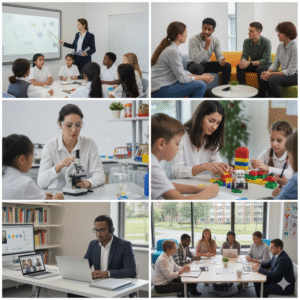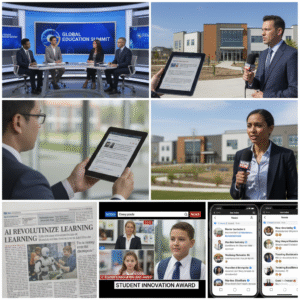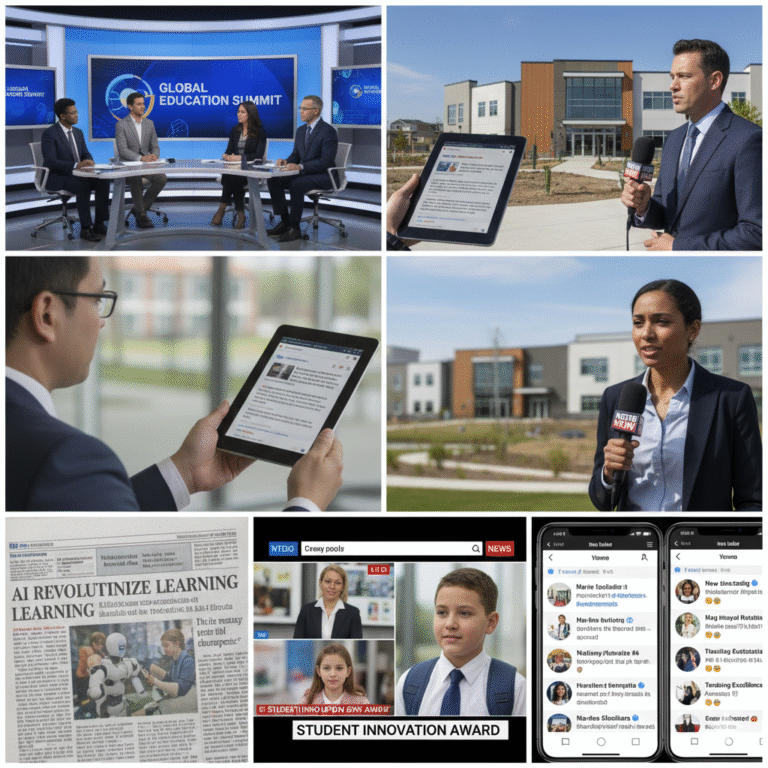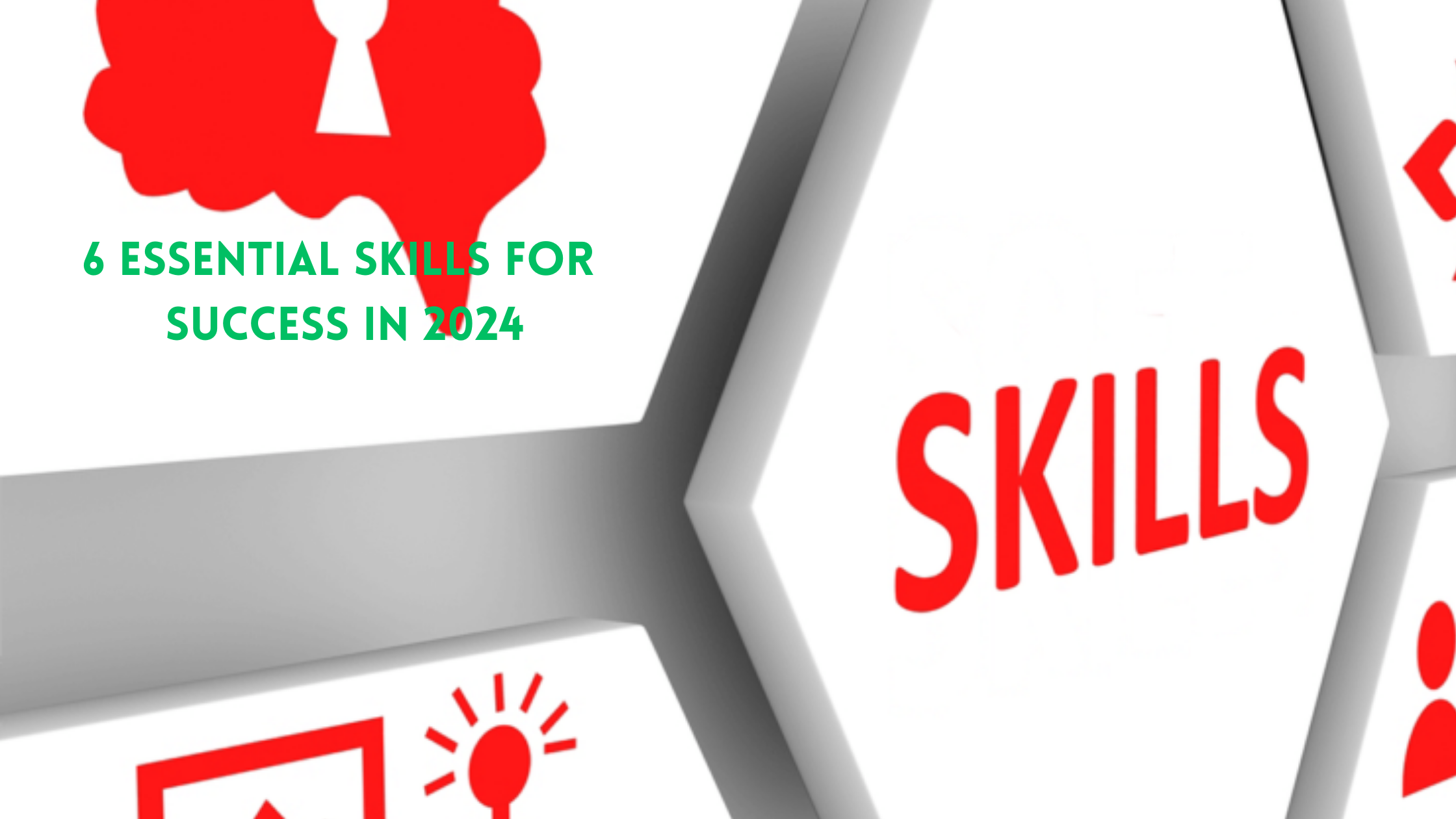
Introduction:
In the contemporary era, skills stands as the cornerstone for navigating the swiftly evolving global landscape. The rapid progression fueled by technological innovations and societal transformations necessitates individuals to continuously adapt and cultivate indispensable abilities. As we embark on the journey into 2024, honing specific essential skills emerges as imperative for flourishing in both personal and professional domains. This essay delves into six pivotal skills that individuals should prioritize in developing to excel in the year 2024 and beyond.
Digital Literacy
Navigating the Information Age In the digital age, where information is abundant and easily accessible, digital literacy has become a cornerstone skill. Individuals must not only be able to use digital tools proficiently but also critically evaluate information. This involves understanding data analytics, cyber security, and the ethical implications of technology. As we progress into 2024, digital literacy will remain a fundamental skill, influencing various aspects of work, education, and daily life.
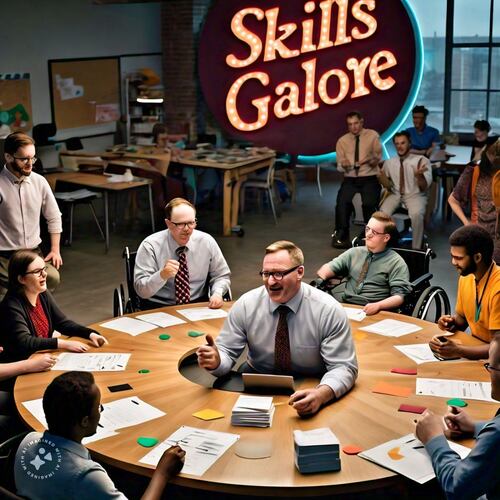
Adaptability: Embracing Change in a Dynamic World
The rate of change in the world is accelerating, driven by technological breakthroughs, globalization, and unforeseen events. The ability to adapt to new situations, learn quickly, and pivot when essential is a skill that will be highly valued in 2024. Adaptability extends beyond professional settings, encompassing personal growth and resilience in the face of challenges.
Emotional Intelligence
Emotional intelligence, a crucial aspect of personal development, involves the ability to recognize, understand, and manage one’s own emotions, as well as empathize with others. Self-awareness, the cornerstone of emotional intelligence, enables individuals to navigate complex social interactions with finesse. Cultivating empathy fosters strong interpersonal connections, promoting effective communication and collaboration. Emotional regulation empowers individuals to respond to challenges with resilience, maintaining a balanced emotional state. Social skills, another key component, facilitate positive relationships and teamwork. The adept use of emotional intelligence enhances decision-making by considering both logic and emotions. Individuals with high emotional intelligence demonstrate adaptability, embracing change with grace. Recognizing and managing stress is integral to maintaining emotional well-being. Ultimately, emotional intelligence equips individuals with the tools needed to navigate the intricate landscape of human emotions, fostering personal growth and enriching both professional and personal relationships.
Critical Thinking
Another importance and essential skill is Critical thinking Critical thinking is the disciplined art of analyzing, evaluating, and synthesizing information to make informed decisions. It involves the ability to question assumptions, recognize biases, and consider alternative perspectives. In a world inundated with information, individuals must cultivate critical thinking skills to navigate complexities and discern credible sources from misinformation. Rigorous examination of evidence, logical reasoning, and the capacity to identify underlying assumptions are pivotal components of this cognitive process. Critical thinkers are adept at discerning patterns, connecting disparate pieces of information, and drawing well-founded conclusions. They embrace intellectual curiosity, valuing evidence over personal beliefs. In today’s dynamic landscape, where challenges are multifaceted, critical thinking is indispensable for problem-solving and decision-making. It fosters intellectual independence, empowering individuals to challenge the status quo and contribute meaningfully to societal discourse. Moreover, a society that promotes critical thinking nurtures citizens capable of adapting to change, fostering innovation, and engaging in constructive dialogue for the betterment of the collective intellect.

Reskilling and Lifelong Learning: Staying Relevant in a Rapidly Changing World
In today’s swiftly transforming world, for that purpose interpersonal skills are very important. Reskilling and lifelong learning have become essential strategies for individuals aiming to stay relevant in their careers. The rapid evolution of technology and industries necessitates a proactive approach to acquiring new skills and updating existing ones. Lifelong learning is no longer a choice but a prerequisite for professional success. The dynamic nature of the job market demands that individuals embrace continuous learning to adapt to emerging trends and challenges. Reskilling, the process of acquiring new skills tailored to current demands, ensures that individuals remain competitive and versatile in their respective fields. The concept goes beyond traditional education, encompassing a mindset that values ongoing self-improvement and adaptability. Those who actively engage in reskilling and lifelong learning not only enhance their employability but also foster a sense of personal development and resilience in the face of uncertainty. In essence, the commitment to staying informed and agile through continuous learning has become a cornerstone for navigating the complexities of our rapidly changing professional landscape.
Global and Cultural Competence
Global and cultural competence is an essential skill set in today’s interconnected world. It involves understanding and appreciating diverse cultures, values, and perspectives. Individuals with global competence exhibit openness and adaptability, enabling effective communication and collaboration across borders. This proficiency is particularly crucial in the business arena, where navigating international markets requires sensitivity to cultural nuances. Educational institutions recognize the significance of fostering global competence in students to prepare them for a diverse workforce. Embracing diversity and inclusion are key components of global competence, fostering an environment that values different backgrounds and experiences. Cross-cultural communication skills, language proficiency, and a willingness to learn about and respect other cultures are vital aspects of this competency. As societies become more interconnected, the demand for individuals with global and cultural competence continues to grow, contributing to a more harmonious and collaborative global community.
Conclusion
In conclusion, mastering the essential skills outlined above is imperative for success in 2024 and beyond. The convergence of technological advancements, societal changes, and global interconnectedness creates a landscape that rewards individuals who are adaptable, digitally literate, emotionally intelligent, critical thinkers, lifelong learners, and culturally competent. These skills not only enhance professional prospects but also contribute to personal growth and well-being. As we face the challenges and opportunities of the future, the cultivation of these essential skills will empower individuals to thrive in a rapidly evolving world.
